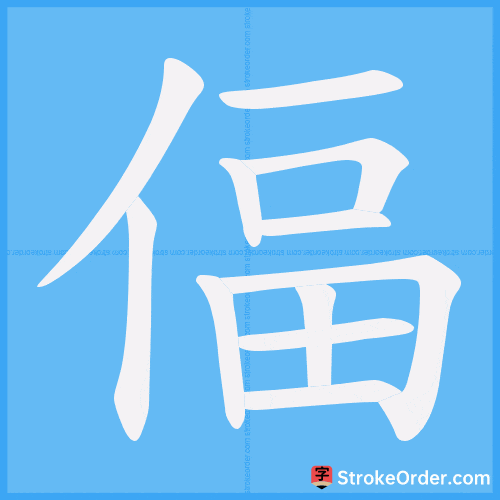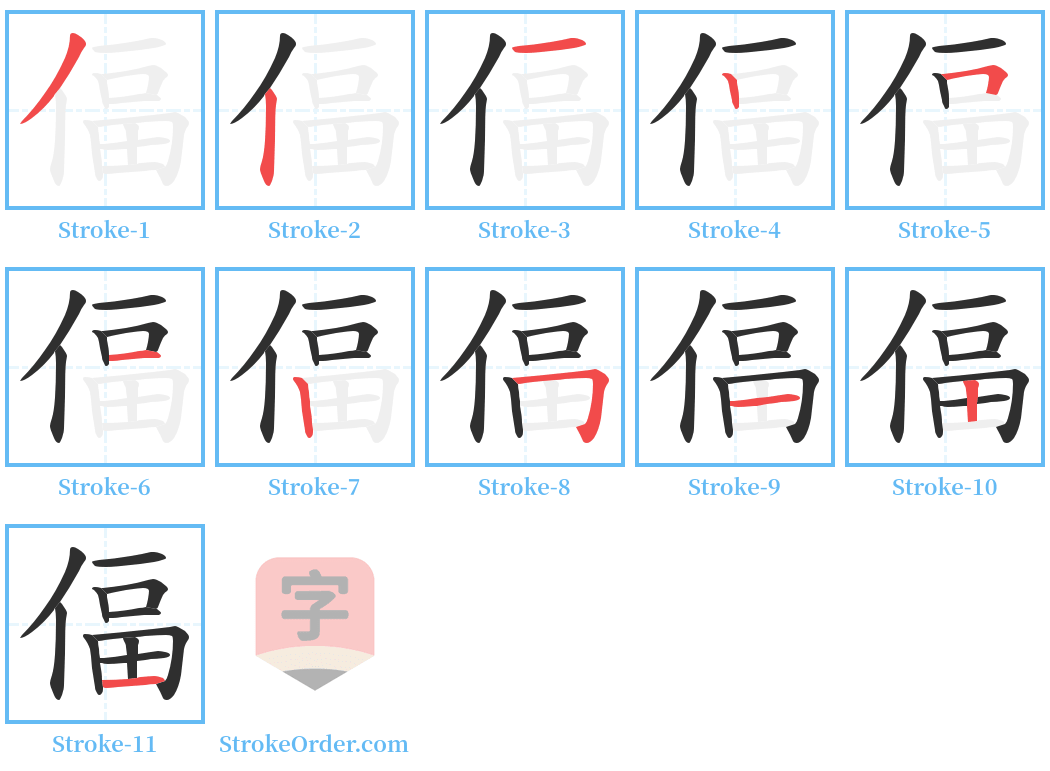偪 Stroke Order
Animated Stroke Order of 偪

Stroke Order Diagrams for 偪

Information of 偪
Pinyinbī
Radical
亻
Strokes
11 strokes
Usage
★★
Definition
偪: 1. Same as "逼" (to force). 2. Verb: To invade and oppress. Same as "逼".- Example from "Zuo Zhuan" (The Zuo Commentary): "What crime does the clan of Huan Zhuang have, that it is to be killed? Is it not only because they are oppressed?" - Example from "Mencius": "When the grass and trees flourish, and the beasts reproduce; if the grains do not grow, the beasts will invade humans."3. Noun: Specifically refers to "行縢" (a type of leg binding). This wraps around the lower leg to facilitate jumping and movement. Commonly referred to as "绑腿" (leg bindings). - Example from "Book of Songs": "With red roots at the thighs, and the bindings below." Reference explains: "Bindings are called 偪, meant for constricting oneself." - Commentary by Zheng Xuan: "These bindings, today known as 行縢, constrict the legs from the feet to the knees, thus are said to be below." - Example from "The Book of Rites": "The 偪 shoes worn with their tassels."4. Noun: See "偪阳" entry.5. Verb: To yield or submit. Same as "伏" (to lie down or submit). - Example from "Records of the Three Kingdoms": "The people of Jingzhou who sided with Cao were coerced by the military might, they did not submit willingly." 6. Noun: See "偪阳" entry.7. Verb: To yield or submit. Same as "伏". - Example from "Records of the Three Kingdoms": "The people of Jingzhou who sided with Cao were coerced by the military might, they did not submit willingly."
Same Pronunciation Characters
Same Radical Characters
本文来自无名先生投稿,不代表汉字笔顺中文网英文版立场,如若转载,请注明出处:https://www.strokeorder.cn/strokeorder/1730.html

 微信扫一扫
微信扫一扫 